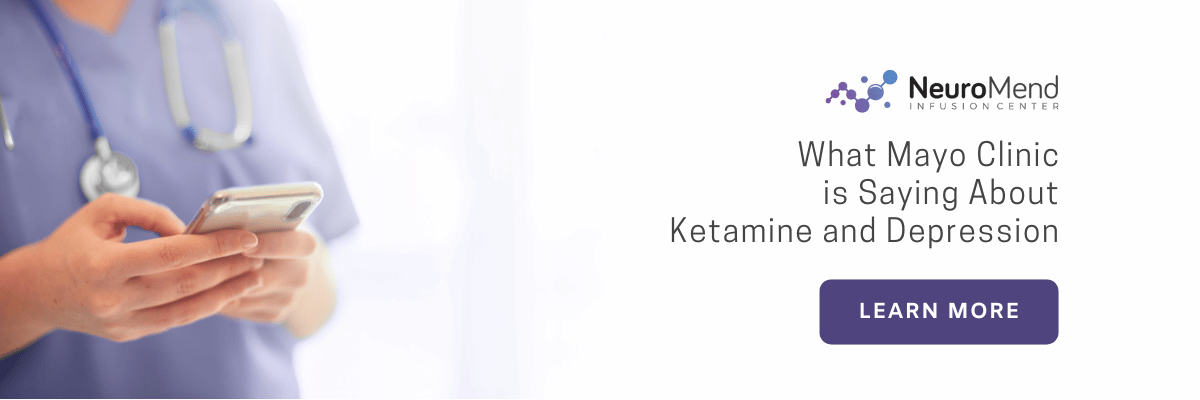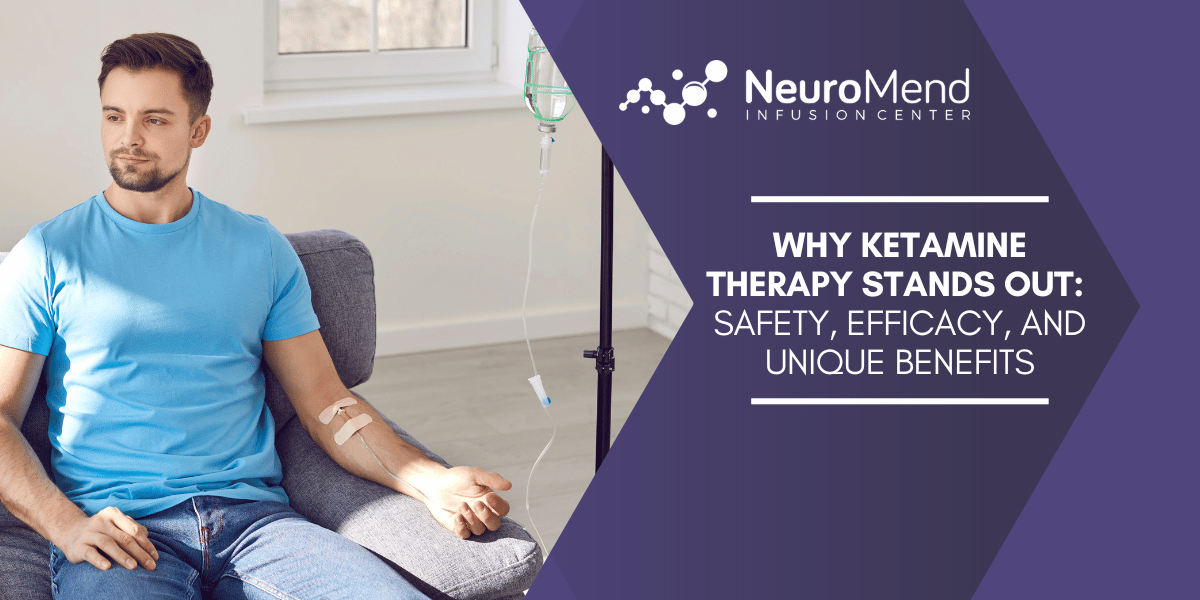
Could it be possible that your medication is causing or worsening the depletion of vital nutrients and vitamins as your body metabolizes it? Do you feel as though your symptoms have progressively gotten a bit worse after originally improving since first starting your anti-depressant medication?
Sadly, this is the case for most people prescribed medication for depression or anxiety. At first, the medication seems to work and your mood noticeably improves. However, as time progresses, not only does the medication seem less effective, but your mood, energy, and sleep may all get progressively worse.
How is nutrient depletion possible?
Studies have shown that anti-depressant medications can have downstream effects, leading to essential nutrient depletion. Below are some common examples.
Increased Demand For B-Vitamins
Most anti-depressant medications work by influencing neurotransmitters in the brain, often by blocking their degradation or reabsorption. One of the most common types of these medications is Selective Serotonin Reuptake Inhibitors (SSRI).
Why high-quality B-Vitamins are important
For your brain and gut to produce more neurotransmitters, they need essential building blocks like B-Vitamins. Specifically B-vitamins like B6, B9 and B12 can contribute to improving brain fog, function, and reduce your depressive symptoms. Because B-Vitamins are water-soluble, they are used up quickly once absorbed into the bloodstream.
By working with a functional medicine doctor to find a high-quality supplement or getting an IV with the appropriate amount of B-Vitamins, you can experience firsthand how adequate vitamin levels positively affect your energy and mood. Without this support, your doctor may suggest increasing your SSRI dose, which can exacerbate nutrient depletion.
Blocking Cell Energy Production
Your cells produce the body's primary energy source, ATP, with the majority of this process carried out by the mitochondria. To keep up with the body's ATP demands, the mitochondria rely on several essential raw materials, including B-Vitamins, magnesium, and CoQ10. Additionally, NAD (nicotinamide adenine dinucleotide) plays a crucial role in this process, as it is required for converting nutrients into cellular energy. NAD is an essential cofactor in mitochondrial ATP production, helping cells efficiently generate the energy they need.
NAD therapy provides a direct way to enhance cellular energy by improving mitochondrial function. By boosting NAD levels, this therapy can lead to increased energy, mental clarity, and overall cellular health. This makes NAD therapy an excellent tool for enhancing cognitive function and supporting the body's natural energy production processes.
What is CoQ10 ?
CoQ10, or coenzyme Q10, is a vital coenzyme found in every cell of the body. It helps protect tissues from oxidative damage and supports the mitochondria in producing ATP. Without sufficient levels of CoQ10, you may experience fatigue, immune system dysfunction, and even an increased risk of depression.
CoQ10 also plays a key role in cardiovascular health, and its antioxidant properties make it a powerful defense against the cellular stress caused by free radicals. Ensuring your body has adequate CoQ10 is essential for maintaining overall energy levels and cellular health.
Anti-Depressants and CoQ10
In addition to supporting energy production, CoQ10 plays a critical role in mental health. Research has shown that anti-depressants can deplete the body's CoQ10 reserves, which may contribute to "treatment-resistant depression." When CoQ10 levels are low, your body and brain may struggle to maintain the energy needed for optimal function, exacerbating symptoms of depression and fatigue.
Finding the right dose and brand of CoQ10 is crucial to meet your body's needs. Supplementing with CoQ10 can help restore energy levels, improve mood, and enhance overall well-being, particularly for those experiencing depression that doesn't respond to traditional treatments.
NAD and Neurocognitive Benefits
Recent research has highlighted the neurocognitive benefits of NAD, particularly in relation to brain health and cognitive function. NAD is involved in DNA repair, cellular stress resistance, and overall brain cell health. Increasing NAD levels has been linked to improved mental clarity, memory, and cognitive performance, making it a valuable tool for those looking to enhance brain health or combat age-related cognitive decline.
By boosting cellular energy and supporting the mitochondria, NAD can help protect neurons and reduce the risk of neurodegenerative conditions. With its ability to promote healthy brain function, NAD IV therapy is gaining recognition as an effective way to support both mental and physical vitality.
Disrupting Melatonin Production
Melatonin, known as the "sleep hormone," is produced by the pineal gland and is sensitive to circadian rhythms. It signals the body when it's time to sleep and recover, playing a crucial role in ensuring deep, restful sleep.
Melatonin as a sleep signaler
Melatonin also acts as a powerful antioxidant, helping the body recover from oxidative damage. Research shows that certain anti-depressants can disrupt melatonin production and sensitivity, leading to poor sleep quality. Without proper sleep, the body and brain cannot adequately recover, leading to fatigue, mood disruption, and depressive symptoms.
trouble sleeping on anti-depressants?
If you're having trouble sleeping while taking anti-depressant medication, consider trying a low dose of melatonin or a liposomal form to improve absorption. Consulting a functional medicine practitioner can also help troubleshoot your sleep issues and address the root cause.
Impact on Magnesium Levels
Magnesium is a crucial mineral involved in hundreds of biochemical reactions within the body, including nerve function, muscle contraction, and energy production. Many anti-depressants, particularly SSRIs, have been linked to magnesium depletion, which can further exacerbate symptoms of depression, anxiety, and insomnia.
Why Magnesium Is Essential
Magnesium plays a vital role in regulating neurotransmitter activity and promoting a calm, balanced mood. Low magnesium levels have been associated with increased anxiety, difficulty sleeping, and chronic fatigue. If you're experiencing these symptoms while on anti-depressants, magnesium deficiency could be a contributing factor.
How to Replenish Magnesium
You can improve your magnesium levels through dietary changes by incorporating magnesium-rich foods such as leafy greens, nuts, seeds, and whole grains. Additionally, magnesium supplements or IV therapy can help restore optimal levels and potentially alleviate the side effects of anti-depressant medications.
Depleting Zinc and Its Role in Mood Regulation
Zinc is another essential nutrient that is often overlooked, but it plays a critical role in neurotransmitter function and overall mental health. Studies have shown that prolonged use of anti-depressants may contribute to zinc depletion, which can impair mood regulation and immune function.
How Zinc Influences Mental Health
Zinc is involved in the production of neurotransmitters like serotonin and dopamine, both of which are essential for maintaining a stable mood. Low levels of zinc have been linked to increased feelings of sadness, irritability, and lack of motivation—common symptoms of depression.
How to Address Zinc Deficiency
To combat zinc depletion, it's important to consume zinc-rich foods such as shellfish, beef, chickpeas, and pumpkin seeds. You may also consider working with a functional medicine doctor to assess your zinc levels and explore supplementation or IV therapy to restore balance.
Take the Next Step Towards Better Mental Health
Contact us today to learn more about how NAD and ketamine infusion therapy can support your journey toward improved mental well-being and a better quality of life. Our compassionate staff is here to support you every step of the way, guiding you through the process and ensuring your comfort and safety throughout your treatment. Take the first step towards a brighter future by reaching out to us today and embarking on a path towards a healthier, happier life.
Disclaimer: As of September 29, 2023, NeuroMend no longer offers Spravato treatments. We apologize for any inconvenience and encourage you to consult with our team or your healthcare provider for alternative options.

ABOUT NEUROMEND INFUSION CENTER
![]() We are an Evidence-Based Center of Excellence and the leading provider of Ketamine Infusions, IV Infusions and Ketamine Consulting Services for Ketamine Clinics and IV Therapy Clinics.
We are an Evidence-Based Center of Excellence and the leading provider of Ketamine Infusions, IV Infusions and Ketamine Consulting Services for Ketamine Clinics and IV Therapy Clinics.
We Provide Effective Treatment For The Following Conditions: Major Depressive Disorders, Post-traumatic Stress Disorder (PTSD), Bipolar Depression, Obsessive Compulsive Disorder, Suicidal Ideations, Chronic Migraines, Severe Anxiety, Fibromyalgia and Chronic Pain Syndromes.











